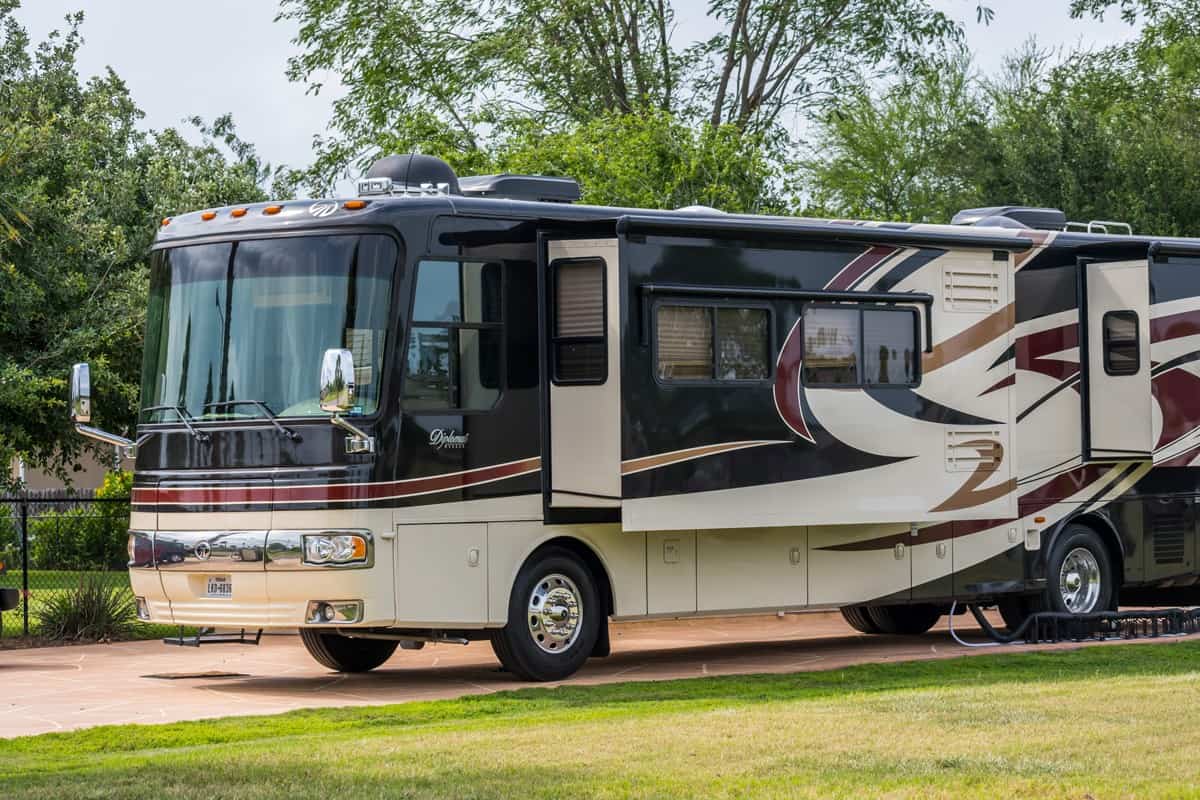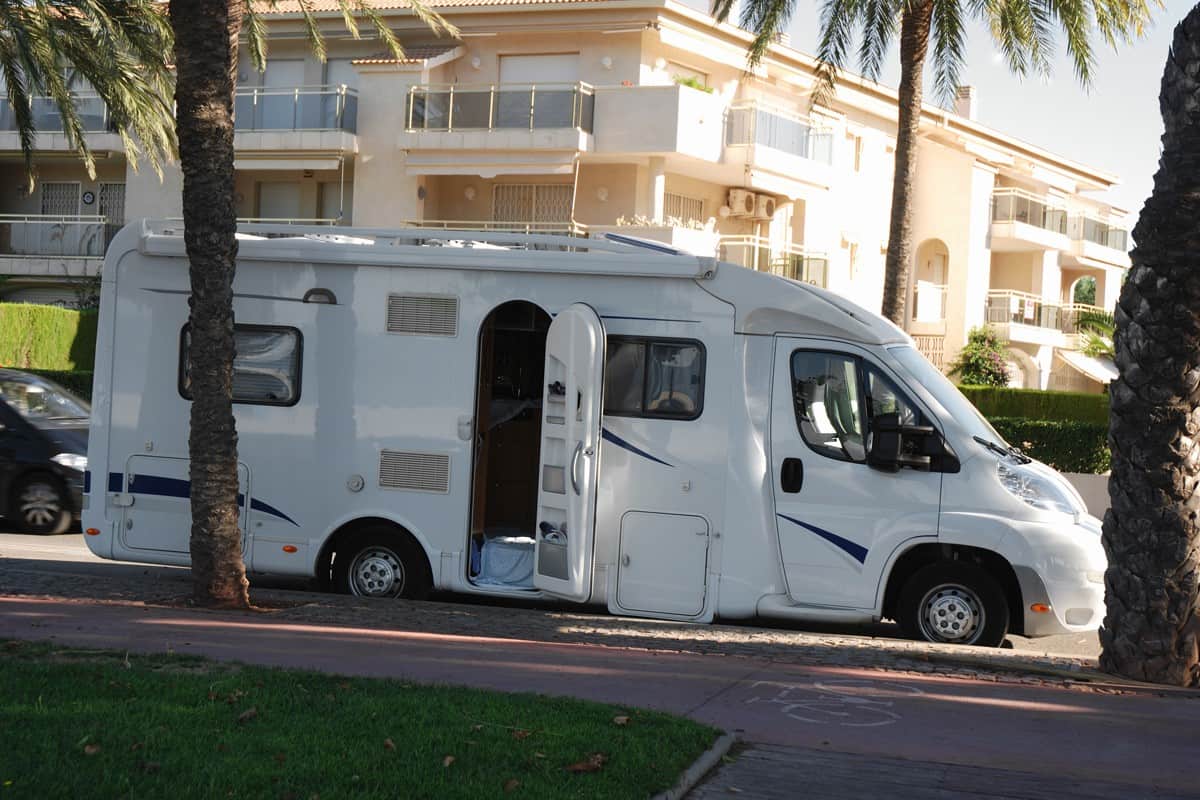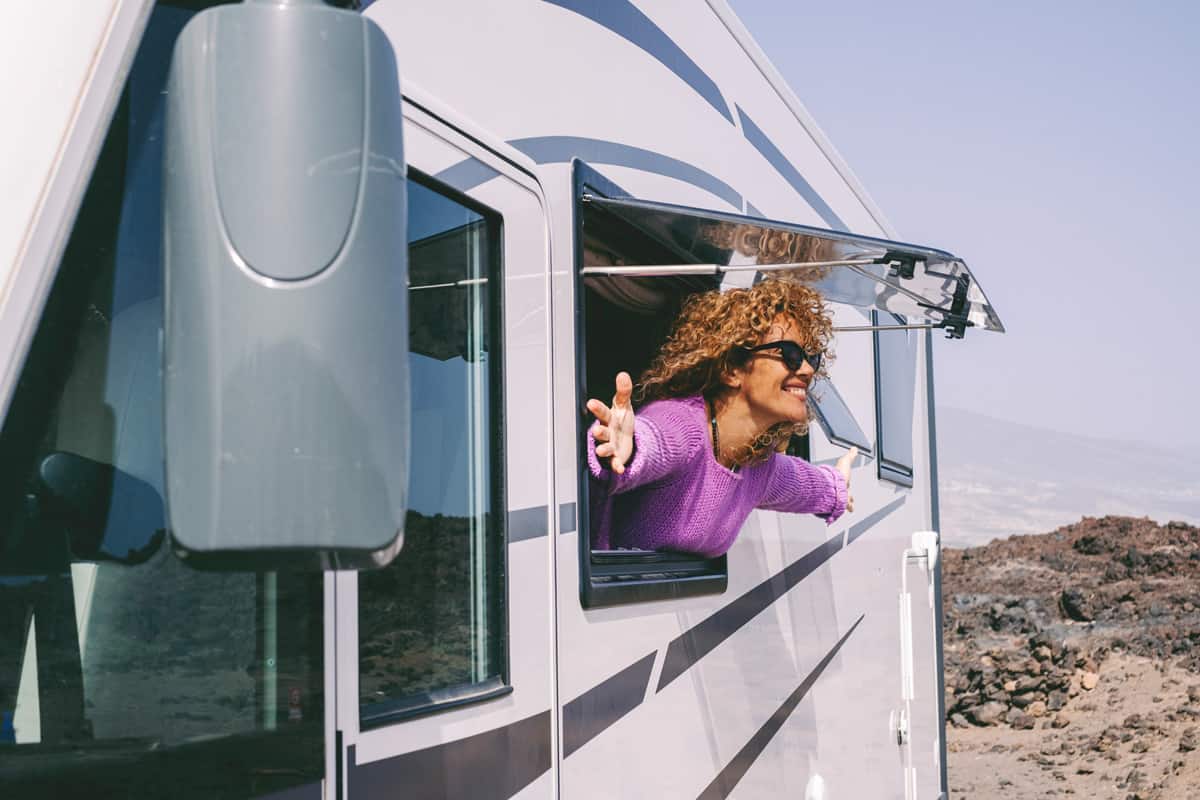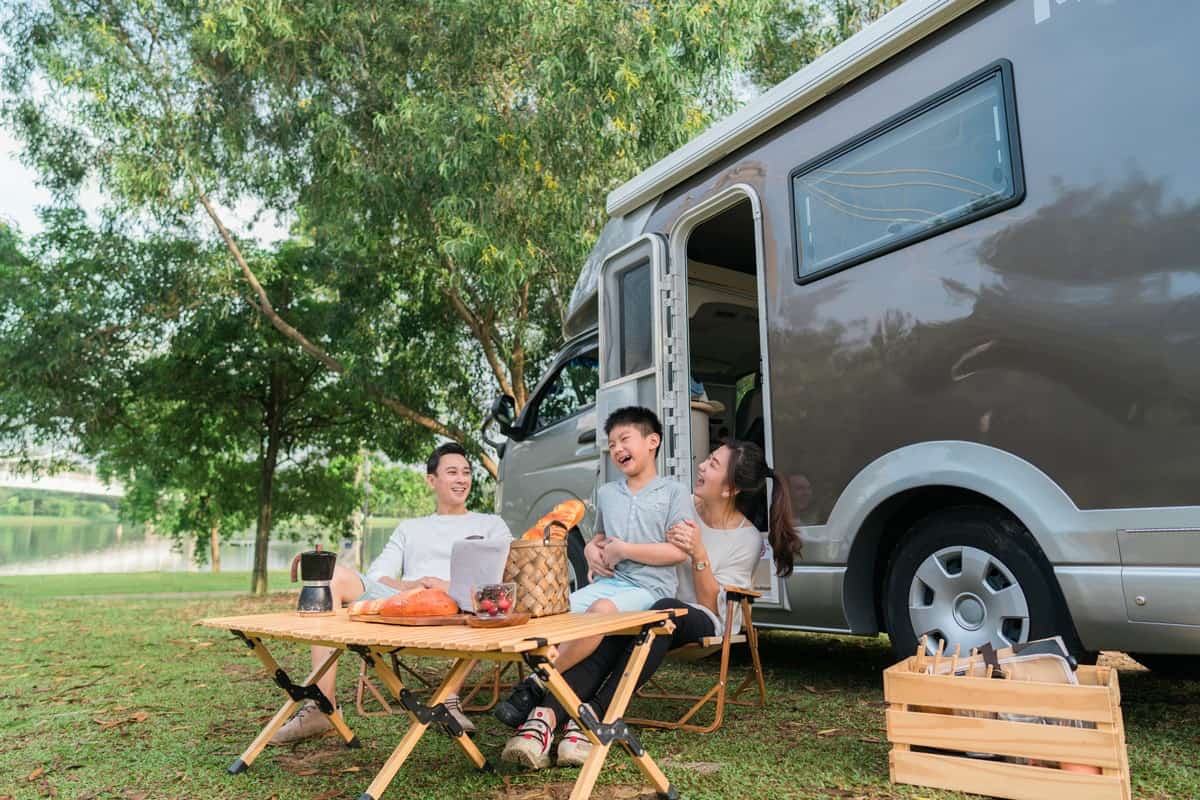Finding new ways to travel can be an exciting time for drivers. However, not understanding the laws of the vehicles you operate can result in fines, jail time, and even a loss of your driver's license.
Are you in Texas and want to rent or purchase an RV? What common laws do you need to know to avoid trouble? We'll cover these and other helpful information throughout this article. Let's dive in!
There are some laws to be aware of for anyone driving an RV in Texas. A few common ones we found include:
- No state laws govern how much/little an RV park can charge you to park.
- Texas allows you to live in your RV as long as you hold a valid license and register it.
- You can park your RV in your driveway (HOA might have an issue, though).
- Passengers over 18 can move around an RV while it's in motion.
- You can run a generator inside an RV while it's moving.
Again, these are state laws, so if you're in certain cities or communities, they can have their own regulations for parking and living in your RV.
As we begin, we will cover all things recreational vehicles and discuss what Texas laws you need to know. Whether you're new to the state, on a road trip, or simply curious, we're here to assist. With that said, let's dive right into this topic below!
![Camping World RV parked on a rural dirt road near Route 66 in Conway, Texas, 5 RV Laws In Texas You Should Know [And Other Useful Information]](https://vehq.com/wp-content/uploads/2022/08/2.-5-RV-Laws-In-Texas-You-Should-Know-And-Other-Useful-Information.jpg)
Does Texas Have Strict RV Laws?

In general, Texas doesn't have strict RV laws. Although there are basic safety procedures, you need to follow while behind the wheel, Texas makes this process pretty simple.
We found that the most critical Texas RV laws have to do with residency and parking. Like many US states, Texas allows you to claim residency in an RV as long as you provide the correct documentation.
According to RV Parenting, you are okay to live full-time in a recreational vehicle in Texas, assuming you have a valid state license and register your vehicle.
This also applies to those with children/families, so you can create a "home" within your RV under state law. If you pay to rent a spot in an RV park, you can also register for a PO box, so this entire process shouldn't be too complex.
Parking is another set of rules you'll want to be aware of in Texas. Usually, as long as you own the property, you park on, this will be fine for extended periods.
However, public land can become a bit trickier, so we'll cover it in greater detail later.
Do You Need Permission To Rent An RV In Texas?

If you want to drive an RV in Texas, there are some rules you need to follow. First, the driver of a recreational vehicle in the lone star state needs to be at least 25 years old.
You will also need to provide a valid Texas state license when applying for an RV rental, so make sure your ID is in good standing.
Unfortunately, if your license is expired or you have a warrant/other legal issues with your documents, Texas will not allow you to operate an RV (or drive at all in some circumstances).
In addition, every registered driver on the rental needs to complete and have a signed positive Motor Vehicle Report before securing their RV.
It's also worth mentioning that if you rent an RV for longer than 12 months, you'll need to sign a written lease and become a "tenant" of your recreational vehicle.
Can You Park On The Street With An RV In Texas?

Now that you know the basics, it's time to cover parking. Most importantly, Texas does allow you to park an RV for extended periods on land you own without any issues.
So, this is entirely legal to do if you have a spare driveway or section of your property where you want to park your vehicle between road trips.
However, if you live in a community with an HOA or other committee, they may have to approve long-term RV parking.
Some people find RVs unappealing, which can become an issue in neighborhoods.
On the other hand, public street parking in Texas has become a different ball game. According to Texas state law, you can legally park an RV on an "improved surface between a dwelling and a public street if the property is one acre or more."
That said, you can only keep your RV on public land in the same spot for 72 hours or less. So, if you want to spend the night in one city, you should be fine to park overnight if you follow the above guidelines.
Do You Have To Pay To Park In An RV Lot In Texas?
Depending on the RV park/community, you will likely need to pay for your stay. RV parks across the United States have nightly or weekly fees for campers/residents, so this is common.
Again, you want to check the location's posted pricing or website before pulling in and parking to avoid any said fees. For longer stays, you might be able to negotiate a monthly rent with the owner of the RV park, which many full-time travelers prefer.
Texas is one of the states in this country that has more privatized RV laws. So, if one RV community wants to charge you $500 a month to park there, that is entirely legal.
With that said, there are a few notable free RV lots in Texas that you might want to check out:
- Ray & Donna West Free RV Park
- Lake Meredith (campground)
- Hamlin RV Park
- Whigham Park
- North Beach
One thing to note is that some of these locations are state-owned, so you want to ensure you come prepared with a valid license, rental agreement, and clean/good-standing driver history if you plan to use them.
Since Texas is law-heavy, it's not uncommon for park police to check up on those staying in the area for long periods. You may also need to pay for parking on state land if it's a holiday or special event, so keep that in mind when preparing.
Can Passengers Drink Alcohol In A Moving RV In Texas?

Due to more relaxed open container laws, RV passengers in Texas can drink alcohol while the vehicle is moving. However, those drinking will need to be away from the front of the RV, so make sure to sit in the back while consuming any alcohol.
Although many US states prohibit drinking in a moving RV, Texas tends to be much more laid-back on the matter. You can also move around in an operating RV if you're 18+ in Texas, so it's a great state for road trip parties.
That said, you want to always be as safe as possible on the road. Even if you aren't driving, having alcohol or being rowdy can become a safety hazard to others in the vehicle.
Therefore, staying seated while an RV is moving is better, even if Texas state law doesn't necessarily prohibit moving around.
Can You Get Pulled Over For Open Containers In An RV In Texas?
You shouldn't run into legal issues as long as no alcohol is near the driver/front of the RV. However, things can get tricky if an officer suspects an RV driver of drinking and operating a vehicle.
According to Texas state law, anyone found driving under the influence will be issued a ticket and have to pay a fine.
Considering that the maximum fine for open containers in Texas is $500, this can quickly add up depending on how many open cans/bottles are in the vehicle.
If you are instructed to do a breathalizer, and it comes back above the legal limit, you can expect to be taken to jail and given a DUI.
Again, this mainly applies to the driver/front seat passenger(s), so you shouldn't need to worry as long as you keep booze towards the back or main cabin.
So, if you want to be extra cautious, we don't recommend having too much (or any) alcohol open and being consumed while on the road.
Can You Turn An RV Into An Airbnb In Texas?

Yes! If you have legal parking and register your RV with the state, it's perfectly fine to use it like an Airbnb.
As we mentioned, the most important part of claiming an RV residency is getting your license and following the proper route with the state.
Again, if you live in a neighborhood with an HOA, there will likely be rules for long-term parking and renting your RV out to guests.
Therefore, you want to consult with them and check your local regulations before listing your property on Airbnb's website. The last thing you want to do is have someone come for a vacation only to be turned away when they arrive.
According to Airbnb, you can list campers, RVs, and even treehouses through their site, providing adequate shelter and livable conditions (water, power, etc.).
To Wrap It All Up
Whether you live in Texas or want to travel there, it's always good to understand their laws. From what we found, renting or owning an RV in Texas should be a pretty easy process.
Most importantly, you want to ensure a valid state license and a clean driving record. RV rental companies will take these into consideration and can deny service if you don't comply.
Furthermore, living in an RV in Texas is 100% legal, so it's up to you to find a safe, compliant place to park. We recommend an RV park or private land.
Made it to the end? Check out these helpful related RV articles below!
RV Water Heater Isn't Working On Electric Or Gas - What To Do?

What are the regulations for construction of RV park in texas
Can you please give me any information about campers for long term RV park rules, regulations, and laws for Texas to research please
Hi Paula! Please check out this other post: https://vehq.com/park-rv-long-term/